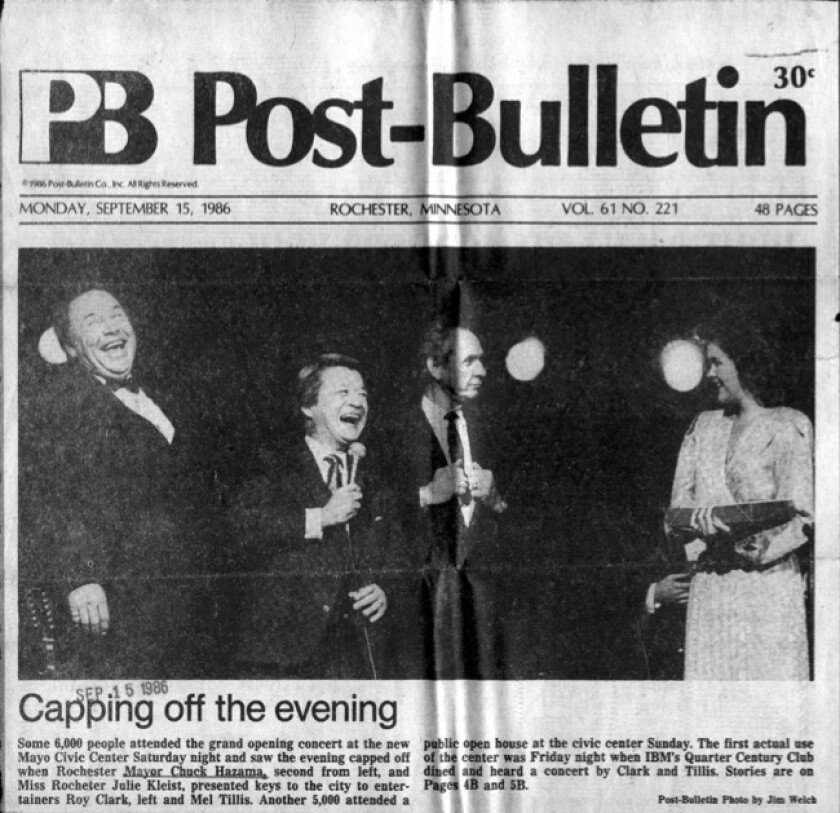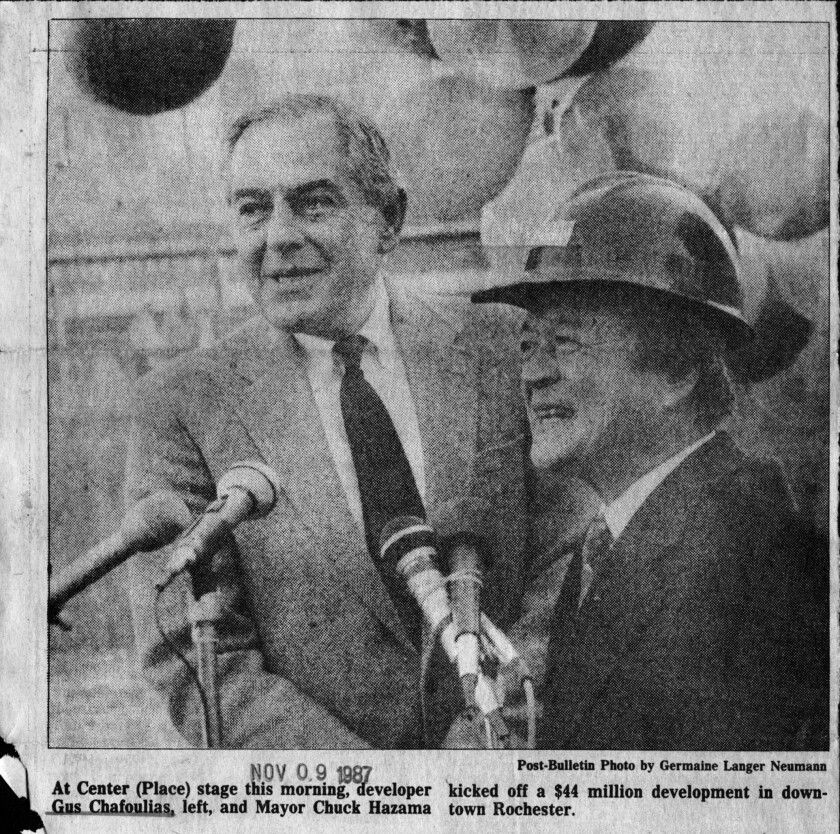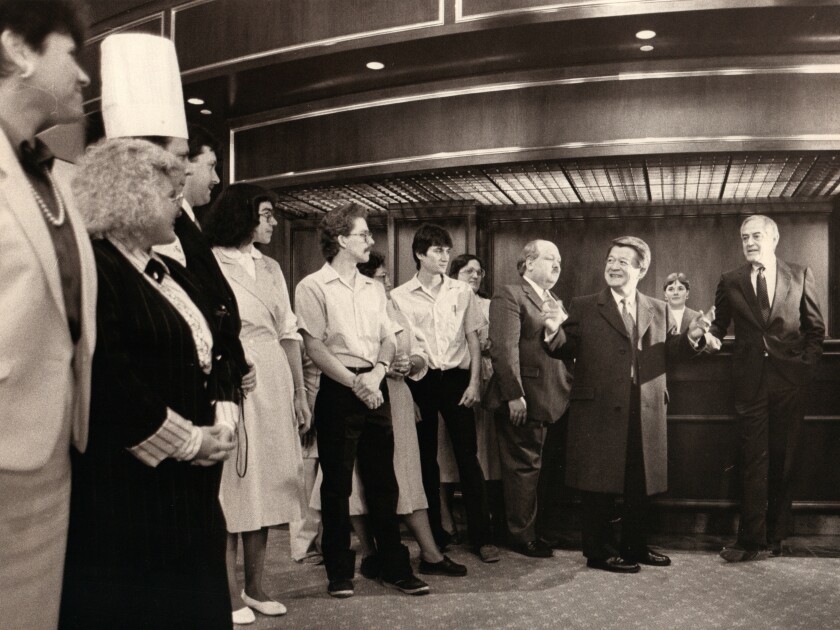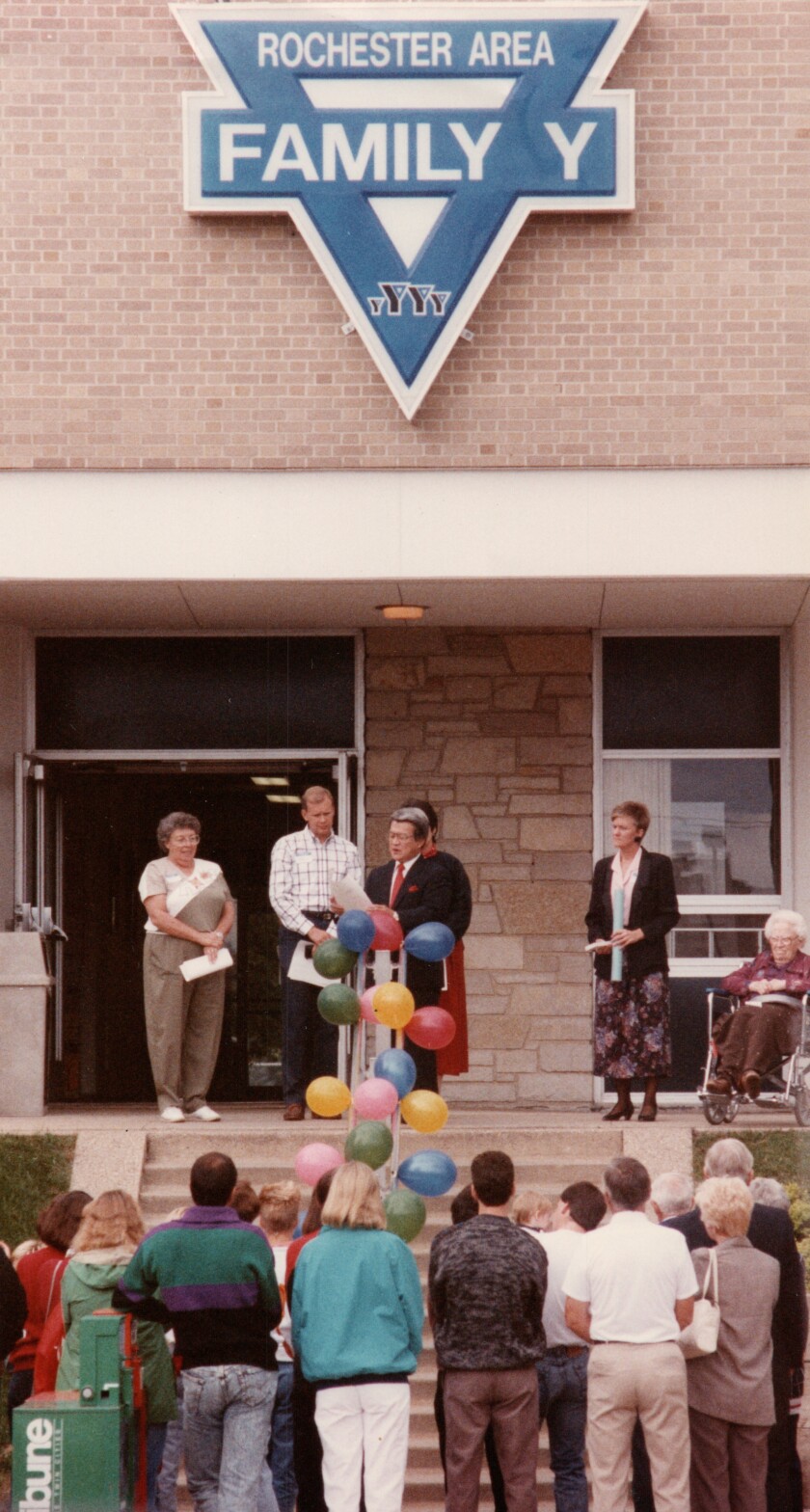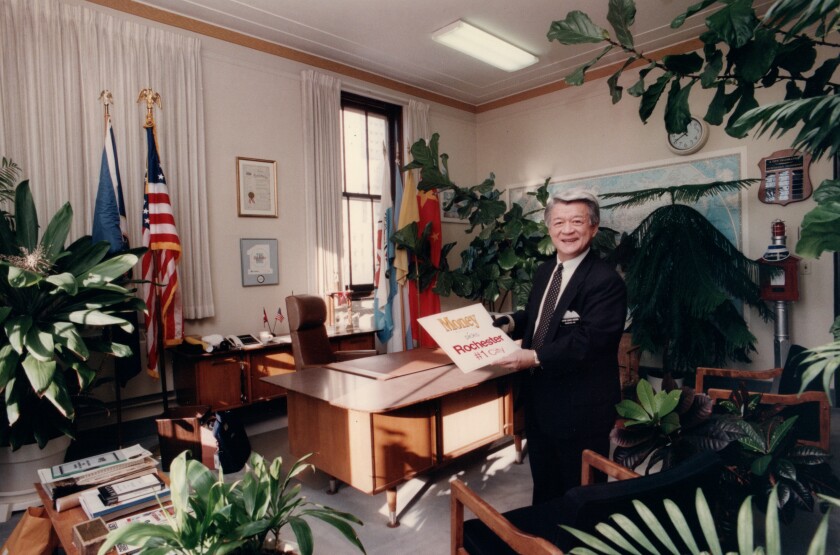Today, much of what is today's Rochester was built during former Rochester Mayor Chuck Hazama's tenure.
Most consider his greatest legacy to be his advocacy and support for the city's flood control system. When the rains pound today, residents rest easy that their homes won't be washed away.
But it was far from his only accomplishment, which alone would have cemented his reputation as one of Rochester's greatest mayors. Hazama, who served as mayor from 1979 to 1996, presided over a pace of growth and downtown development that hasn't been rivaled since. Hazama died last Sunday at 89.
RELATED:
Longtime Rochester mayor Chuck Hazama dies
Consider: Hazama led the campaign to adopt a half-cent sales tax in Rochester to finance the flood control project and expansion of Mayo Civic Center. He started Rochesterfest. He spurred downtown redevelopment, including what is called Galleria at University Square and the Peace Plaza. He initiated Rochester Area Economic Development, Inc., making it into a catalyst for public-private partnerships. Rochester City Hall was moved to its riverfront location during his time.
But Hazama didn't always have the winds of public opinion at his back. His support for the Federal Medical Center stands as the most stark example of his willingness to defy public opinion if he thought it clashed with Rochester's larger interests. The FMC was an issue that not only deeply divided Rochester, it was overwhelmingly opposed by the public. But Hazama supported it anyway.
ADVERTISEMENT
"Chuck came from a generation where he made up his mind and let the chips fall where they may," said former Rochester City Council President John Hunziker, who served alongside Hazama. "And if he got unelected, so be it."

Today, hardly anyone bats an eye that Rochester is home to a federal medical prison that houses drug dealers, terrorists, mobsters and other criminals. The fierce passions that it aroused have been lost to time. But during a two-year timeframe in the mid-1980s, it generated a ferocious resistance, including death threats, petitions and picket lines. Political careers ended over the issue.
It unleashed primal fears. Residents in east Rochester who would live next to the proposed prison could easily imagine escaped criminals rampaging through Rochester and doing God knows what.
As is the case today, Hazama operated within a weak mayoral system. His office was often ceremonial, and Hazama was a cheerleader par excellence. He left the nitty-gritty details to the city council, but he engaged on the big issues.
"Chuck would rarely speak at city council meetings; very often he wouldn't come," said Sen. Dave Senjem, whose service on the city council overlapped with Hazama's time as mayor. "In terms of downtown development, more happened in the '90s than since then. And that all happened under his guard."
When the city council voted 4-3 to spend $250,000 to oppose the medical prison, Hazama vetoed it. Hazama called it the "only major veto I held on the council," and it paved the way for the FMC.
ADVERTISEMENT
Why was Hazama such a staunch supporter of the FMC, which now stands on the grounds of the old Rochester State Hospital? Hazama was convinced it was an economic winner. And subsequent events validated that belief. It has pumped tens of millions of dollars into the local economy. Once the prison was built in the mid-1980s and there were no prison breakouts, the fears subsided.
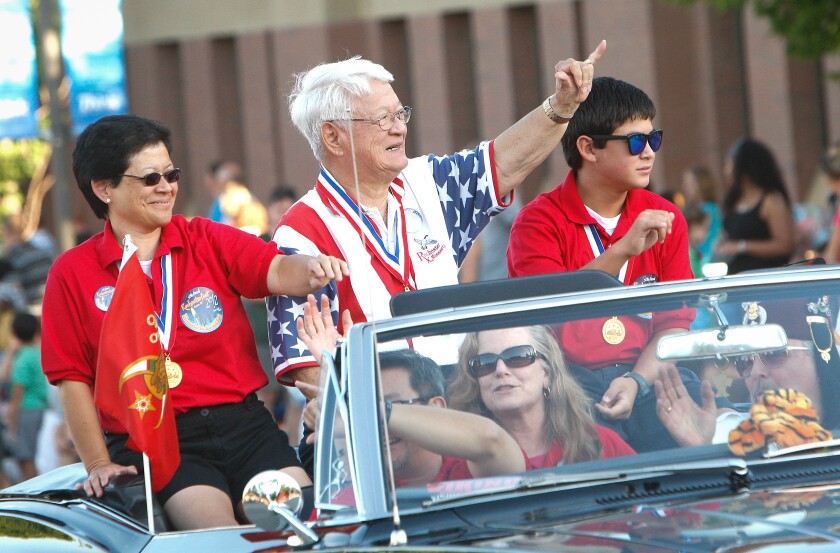
Hazama had toured federal medical centers in North Carolina and Missouri, an experience that he said transformed his attitude toward the facilities.
"When I walked into the Butner facility and was greeted by a seven-month pregnant lady who introduced herself as the warden, all the images I had of a prison went down the tubes," he said.
An ace in the hole in FMC's favor, people speculate, was Mayo Clinic's support for the project. That support was never public or published. Mayo today earns millions providing medical services at the facility.
ADVERTISEMENT
"The clinic wanted it," Hunziker said. "It was good place for their doctors at the time and everybody else, at least from my point of view, to do training."
Hazama apparently never paid a political price for his support of the FMC. He remained a beloved figure among many.
Joe Powers, a restauranteur and caterer, recalls living through that tumultuous time. His dad, Jim Powers, lost his city council seat to Hunziker because of his support for the FMC.
"Our whole family was extremely close to him. He was at our house a lot," Powers recalled about his then grade school-aged children. "My kids in their bedrooms had a picture of Jesus Christ and next to it was Chuck Hazama. And I'm not joking about that. They loved talking to him, being around him. He was our president."
From the archives:
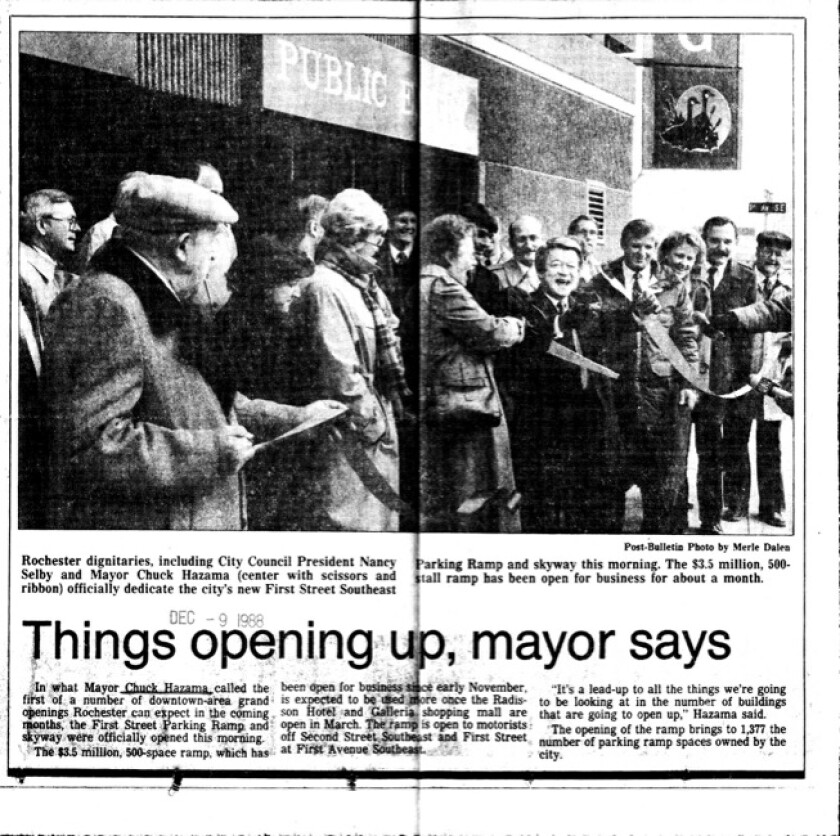
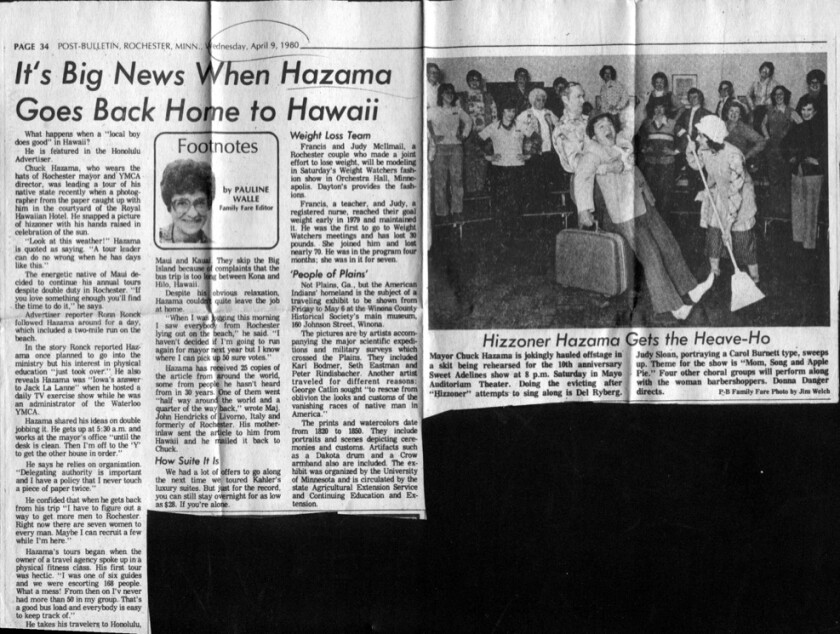
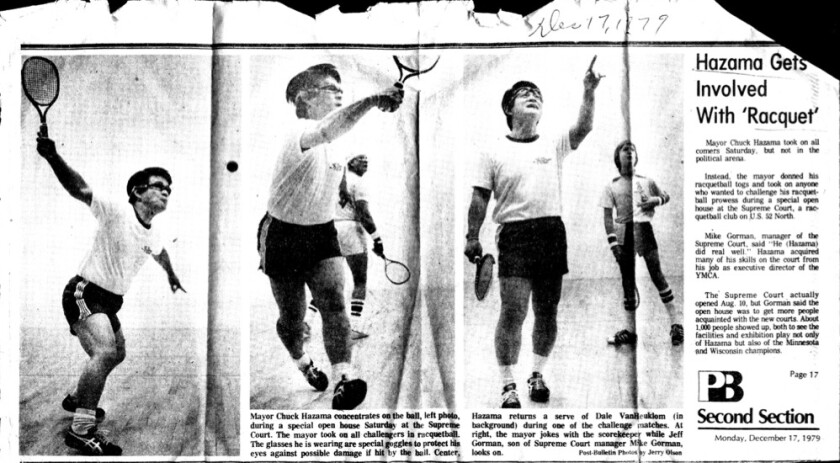
ADVERTISEMENT
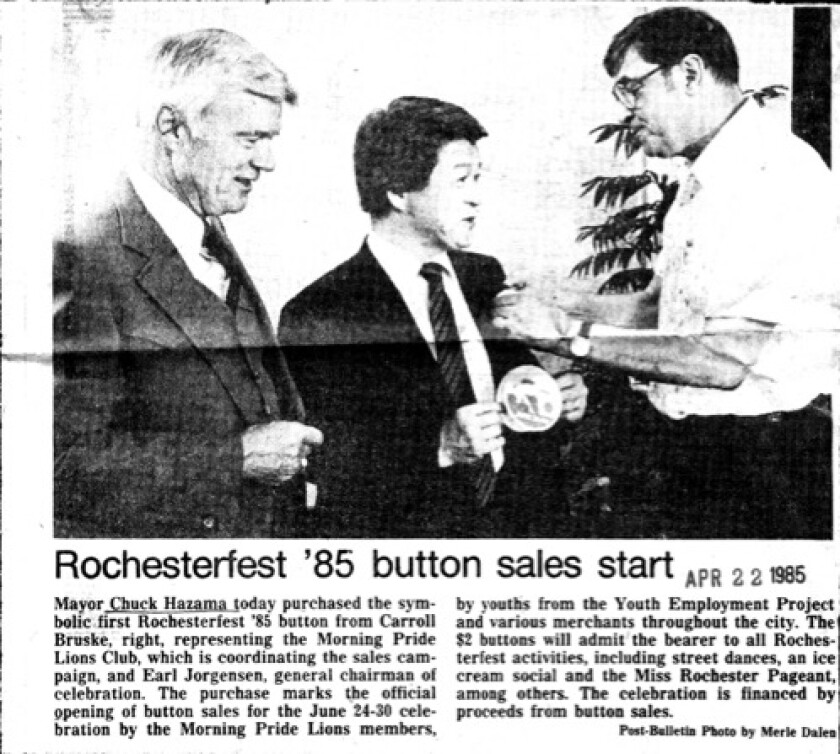
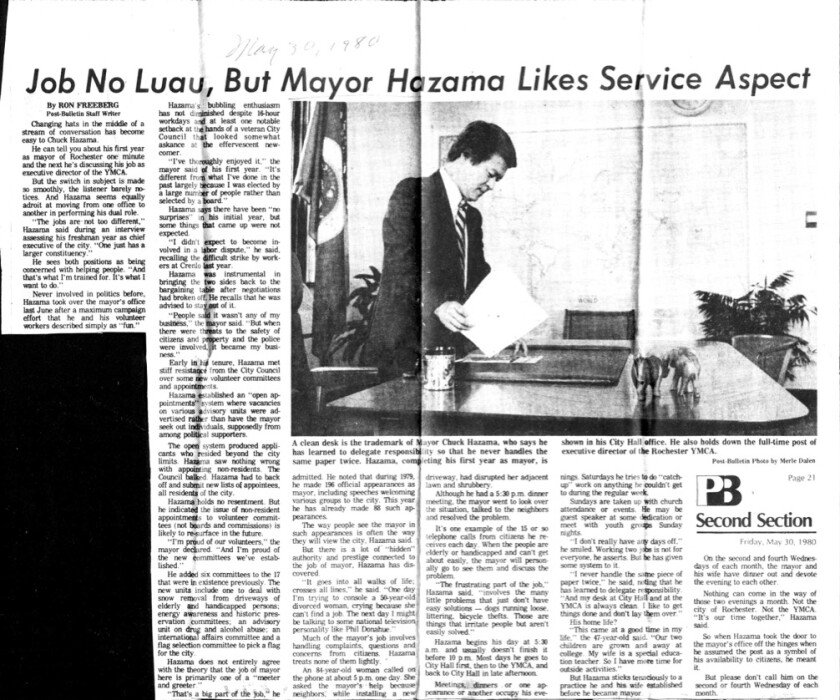
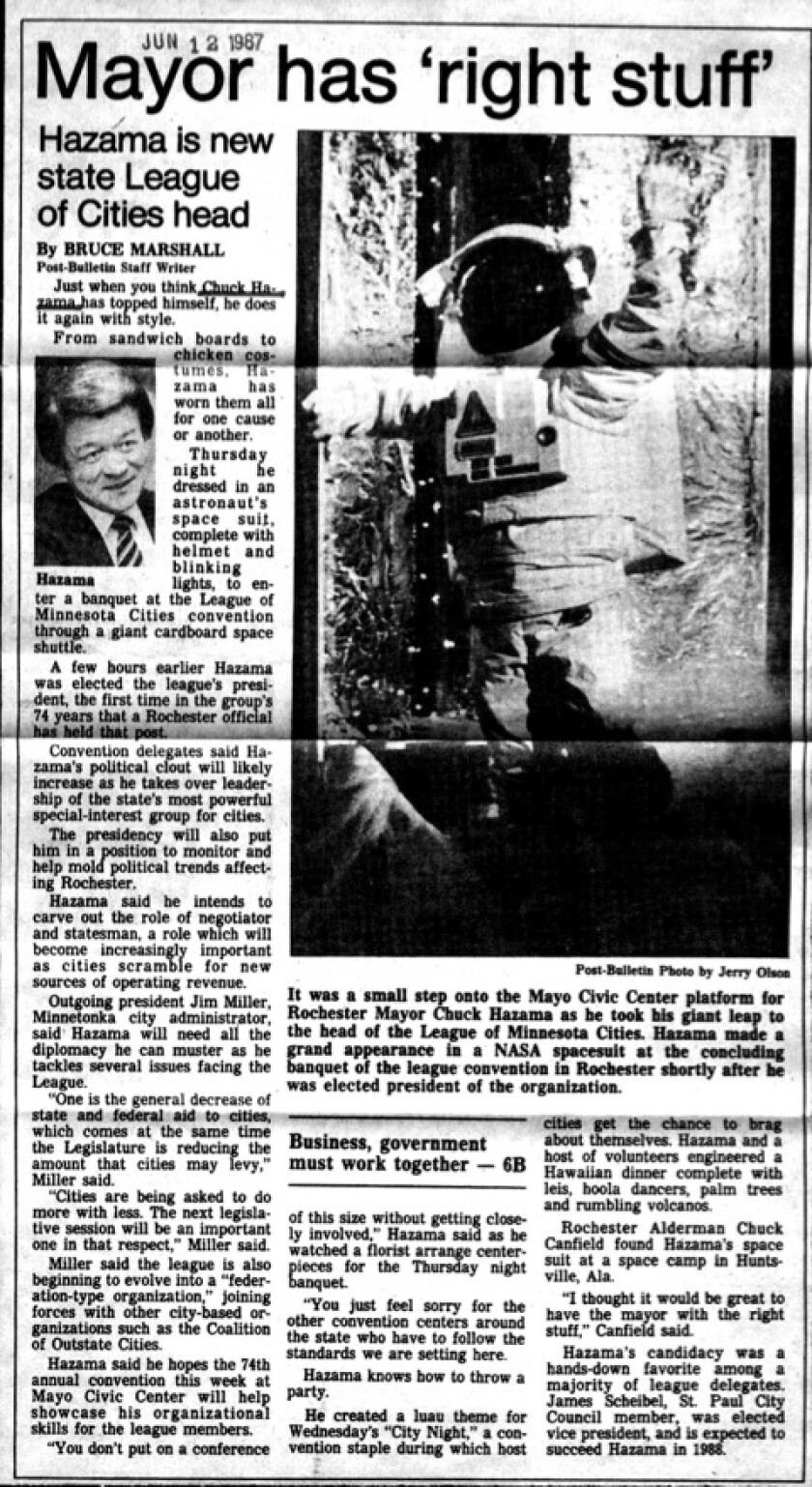
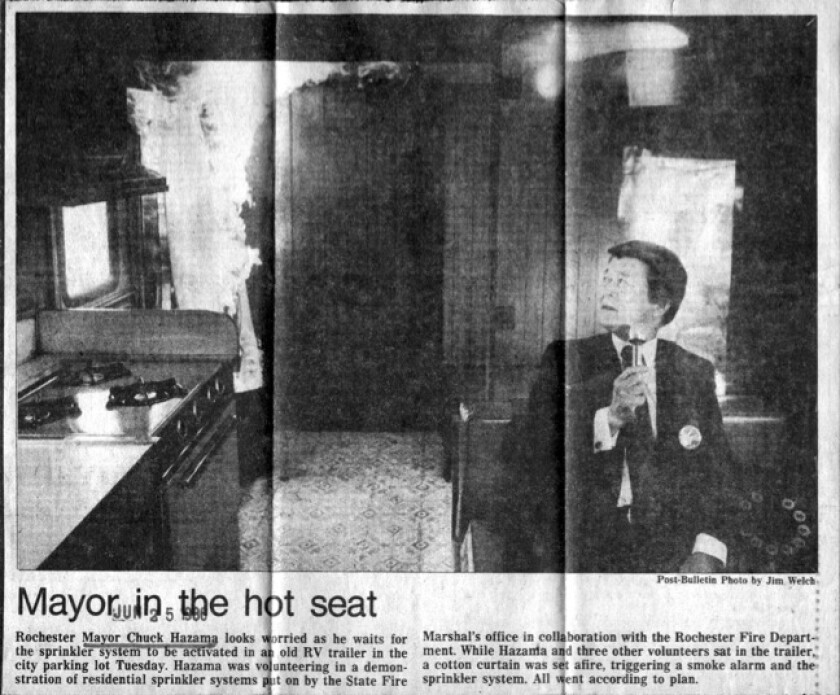
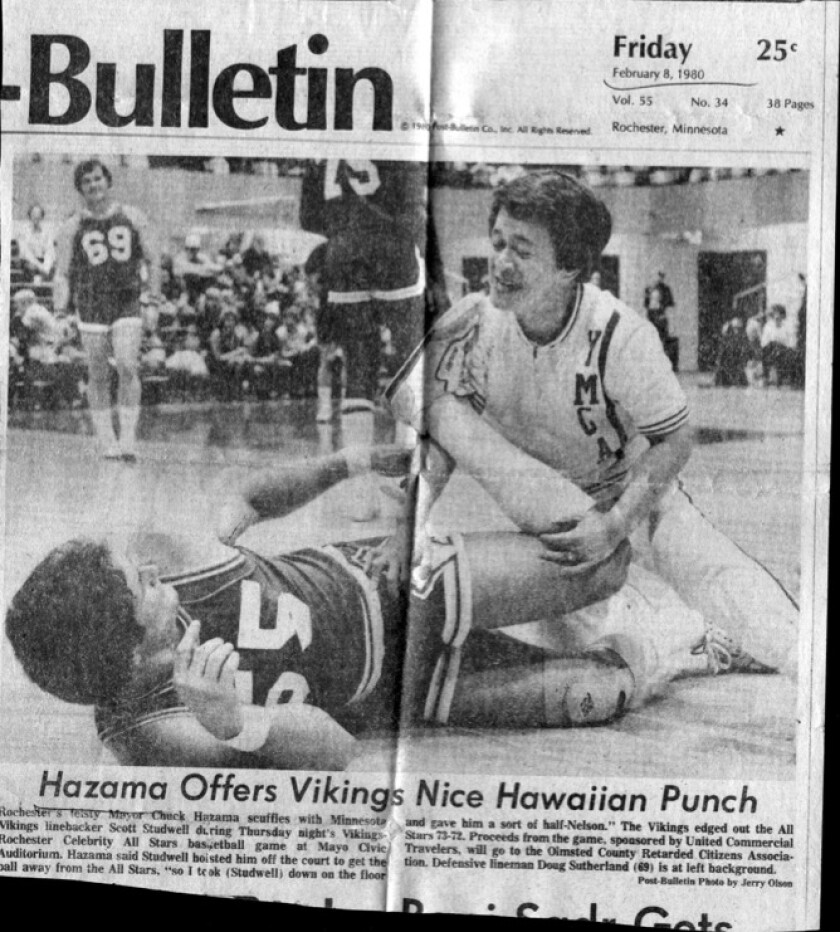
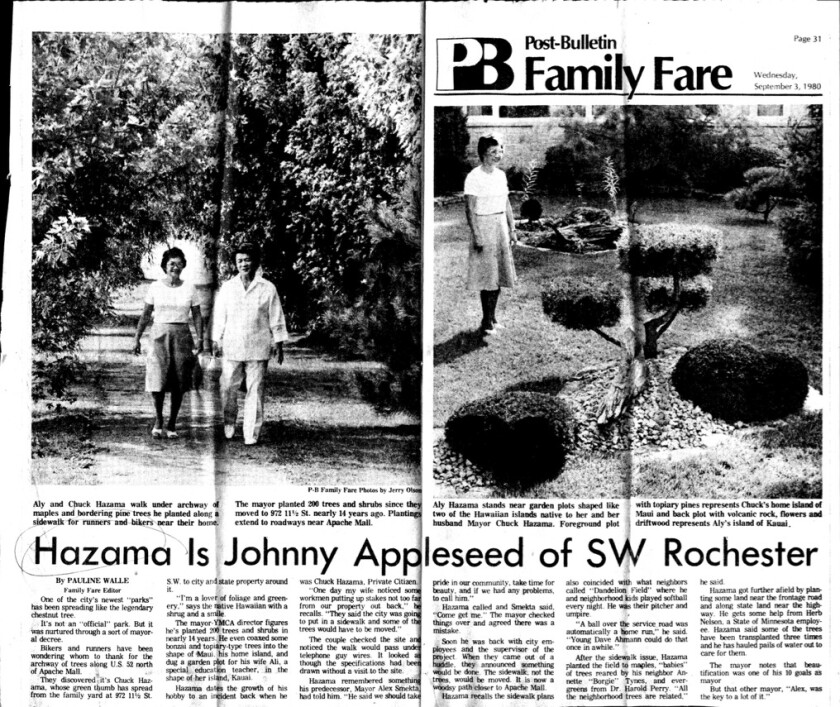
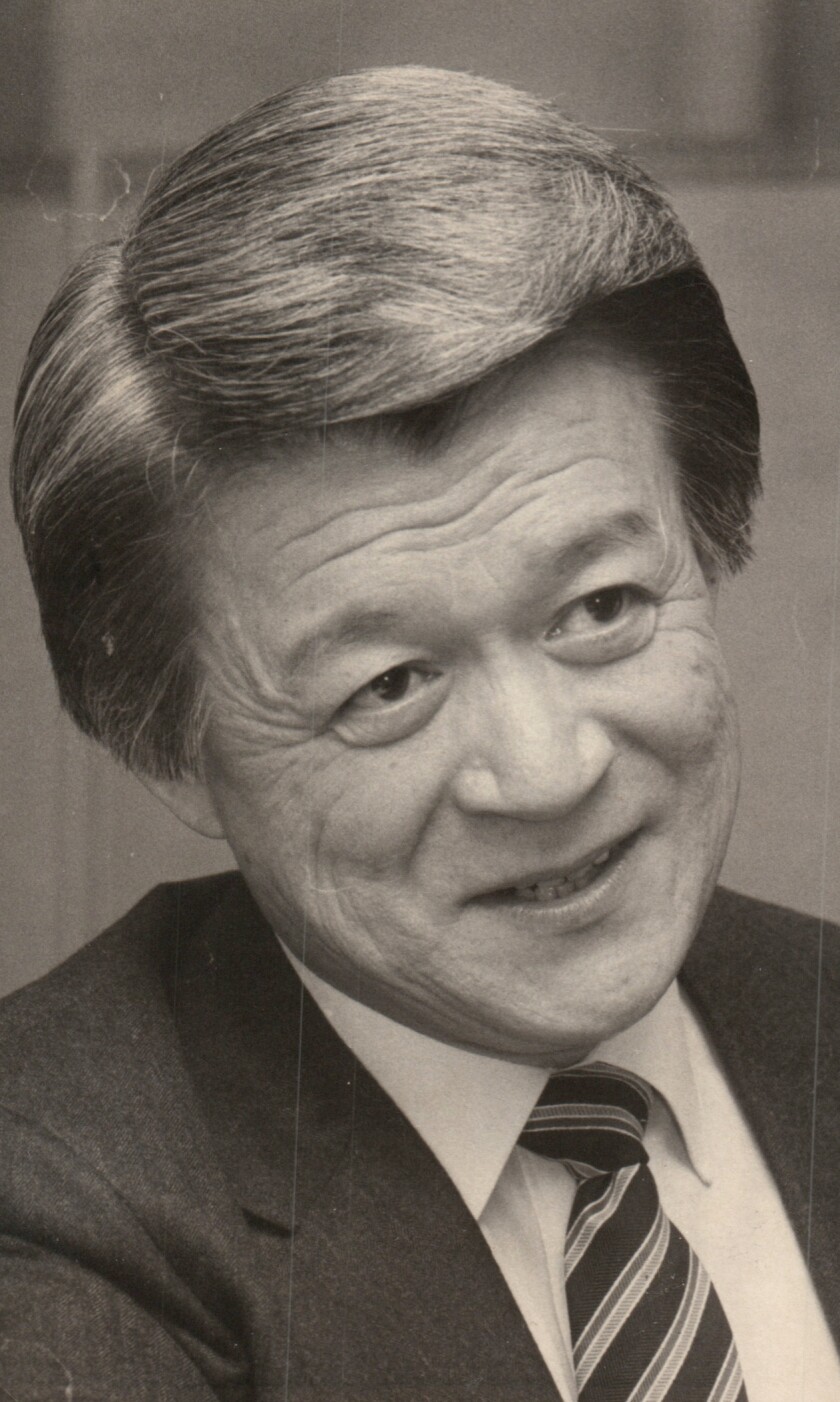
ADVERTISEMENT
